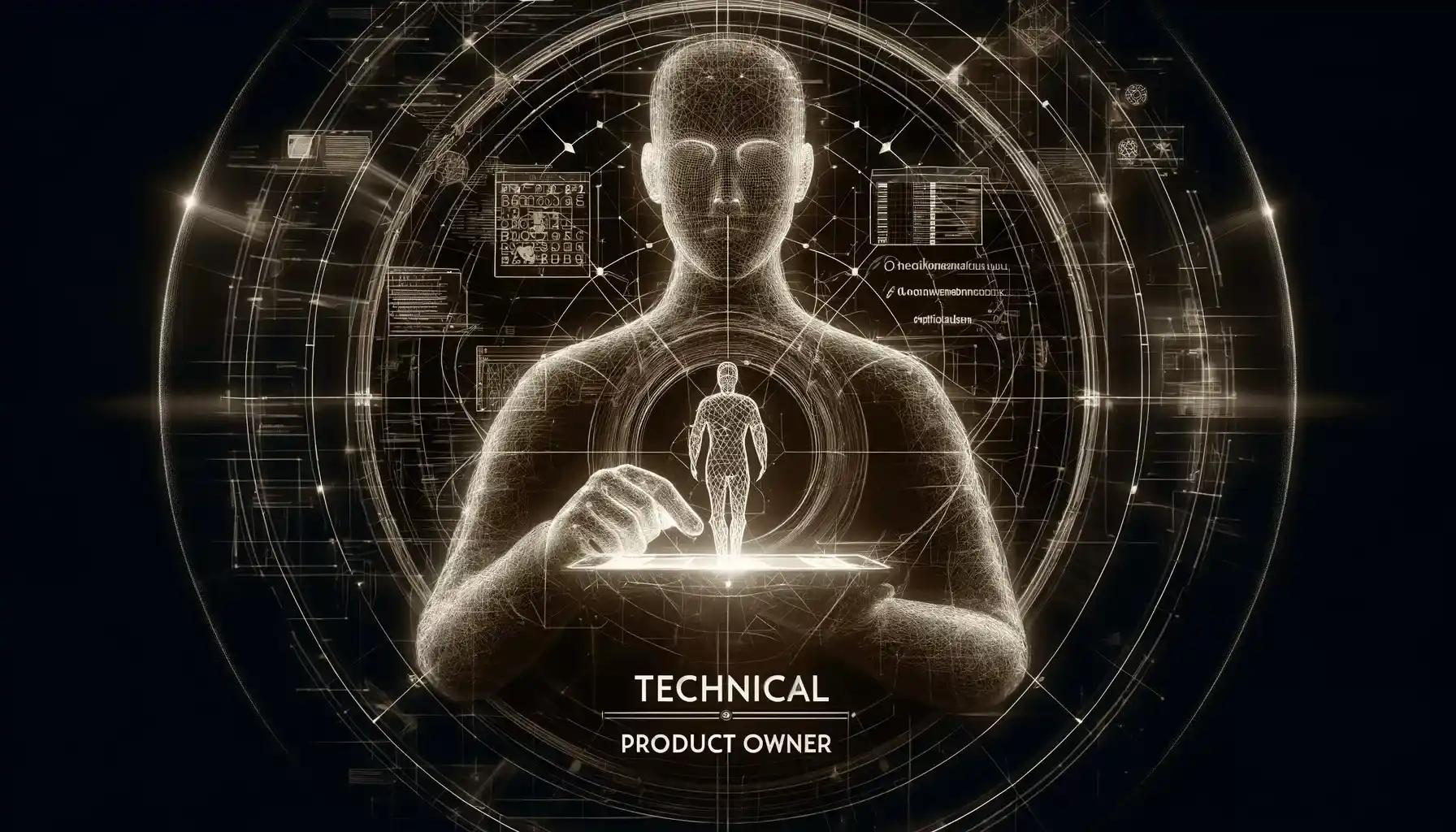Table of Contents
In today’s dynamic tech landscape, Technical Product Owners (TPOs) play a pivotal role in bridging technical expertise with business objectives. They navigate the complexities of product development, ensuring alignment between technical requirements and customer needs. To excel in this role, TPOs require a unique blend of technical prowess and soft skills.
In this article, we’ll delve into the essential qualifications and skills necessary for success in empowering Technical Product Owners. By mastering these vital skills, TPOs can drive project success and contribute significantly to product development endeavors.
Who is a Technical Product Owner?

A Technical Product Owner is a pivotal figure within an Agile development team, entrusted with overseeing the technical facets of a product’s development lifecycle. Working hand in hand with the development team, their primary responsibility is to ensure adherence to technical standards and requirements throughout the product’s creation.
By liaising closely with developers, they facilitate the alignment of technical implementation with project objectives, ensuring the delivery of a high-quality product that meets both user needs and technical specifications.
What does a Technical Product Owner do?
- Managing Technical Standards:
- The Technical Product Owner ensures that the product adheres to technical standards and requirements throughout the development process.
- They oversee the management of technical debt, which involves addressing issues arising from shortcuts taken during development to prevent inefficiencies and bugs.
- Understanding Technical Architecture:
- A deep understanding of the product’s technical architecture and infrastructure enables the Technical Product Owner to effectively communicate technical requirements and constraints to the development team.
- They work closely with stakeholders, including business owners, to ensure alignment between technical requirements and overall business objectives.
- Evaluation of Technical Solutions:
- Technical Product Owners evaluate potential technical solutions and make informed decisions that balance technical requirements with business needs.
- They collaborate with the development team to prioritize technical tasks and ensure the adoption of appropriate technical solutions.
How to Become a Technical Product Owner:
- Obtain Technical Education:
- Pursue a degree in computer science or a related field to gain a solid understanding of software development processes and technologies.
- Develop Communication and Leadership Skills:
- Focus on developing strong communication and leadership skills to effectively communicate technical requirements and collaborate with cross-functional teams.
- Effective communication ensures alignment between technical teams and stakeholders, facilitating informed decision-making.
- Obtain Product Owner Certification:
- Consider obtaining product owner certification to demonstrate proficiency in Agile development methodologies.
- Certification programs provide comprehensive training on Agile principles and practices, equipping Technical Product Owners with the necessary skills to excel in their role.
By following these steps and continuously honing their skills, individuals can embark on a successful career path as a Technical Product Owner, contributing to the success of product development projects through effective management of technical aspects.
Technical Product Owner Qualifications and Skills

Technical Product Owners (TPOs) play a pivotal role in overseeing the development of technical products, requiring a unique blend of technical and soft skills. Here’s a breakdown of the essential qualifications and skills necessary for success in this role:
Technical Skills:
- Project Management Skills: TPOs need to ensure tasks are completed on time and within budget. While they may not directly manage development teams, they use project management skills to keep projects on track and set clear goals. Likewise, TPOs often interact with project portfolio management software to help business leaders align daily engineering work with company-wide goals.
- Tech Expertise: Understanding technologies and their functionalities is crucial for making informed decisions about product development. TPOs should stay updated with the latest advancements in software development, agile methodologies, and design principles.
- Software Development: Familiarity with the Software Development Life Cycle (SDLC), programming languages, and architectural principles is essential for effective decision-making and communication with development teams.
- Agile Development and Scrum Methods: Knowledge of Agile methodologies and Scrum frameworks helps TPOs facilitate efficient development processes and collaboration within cross-functional teams.
- User Interface (UI) and User Experience (UX) Design: TPOs should understand UI/UX design principles to ensure the product meets user needs and delivers a seamless experience.
Soft Skills:
- Communication Skills: Effective communication is vital for conveying the product vision, collaborating with Agile teams, and engaging with stakeholders. TPOs must communicate clearly through various mediums to ensure alignment and understanding among team members and clients.
- Problem-Solving Skills: TPOs must identify issues, develop solutions, and make decisions that benefit the project and stakeholders. Strong problem-solving skills enable them to address challenges creatively and strategically.
- Decision-Making Skills: TPOs make numerous decisions that impact project goals and objectives. They should make informed decisions aligned with business goals and effectively communicate the rationale behind each decision.
- Analytical Capabilities: Analytical skills, including research, logical reasoning, data analysis, and critical thinking, help TPOs collect and analyze information to solve complex problems and make informed decisions.
Roles and Responsibilities of a Technical Product Owner
Product Owner:
- Responsibilities include defining the product vision and strategy, creating and prioritizing the product backlog, and ensuring the product meets customer needs and business objectives.
- Works closely with the development team to deliver the product on time and within budget.
- Communicates with stakeholders to ensure their needs are addressed and incorporated into the product development process.
Product Manager:
- Responsible for the overall success of the product, defining the product roadmap, setting goals, and measuring success.
- Works closely with various teams, including development, sales, and marketing, to ensure the product meets customer needs and achieves business objectives.
- Analyzes market trends and customer feedback to identify opportunities for improvement and collaborates with cross-functional teams to ensure successful product launches.
Agile Coach:
- Assists organizations in adopting Agile methodologies, particularly Scrum, and ensures teams follow best practices.
- Facilitates Agile ceremonies such as sprint planning, daily stand-ups, and sprint reviews.
- Coaches Product Owners on effective backlog management and facilitates communication between the development team and other stakeholders.

Project Manager:
- Focuses on planning, executing, and closing projects, including product development projects.
- Collaborates with the Product Owner and stakeholders to ensure projects are delivered on time, within budget, and meet quality standards.
- Develops project plans, manages risks and issues, and communicates project status to stakeholders.
Business Analyst:
- Analyzes business processes and requirements, identifies areas for improvement, and collaborates with the Product Owner and development team to implement changes.
- Facilitates communication between stakeholders and creates documentation such as user stories and acceptance criteria.
Related Post:
7 Dynamic Agile Methodologies: Empowering Enterprise Software
Conclusion
Technical Product Owners play a critical role in bridging the gap between technical requirements and business objectives, ensuring the successful development of products in today’s fast-paced technological landscape. By possessing a unique blend of technical expertise and soft skills, TPOs empower development teams to deliver high-quality products that meet customer needs and drive business success.
Continuous learning, effective communication, and adept decision-making are essential for TPOs to excel in their roles and contribute to the achievement of project goals. With the right skills and qualifications, TPOs can lead product development projects with confidence and drive innovation in the ever-evolving tech industry.